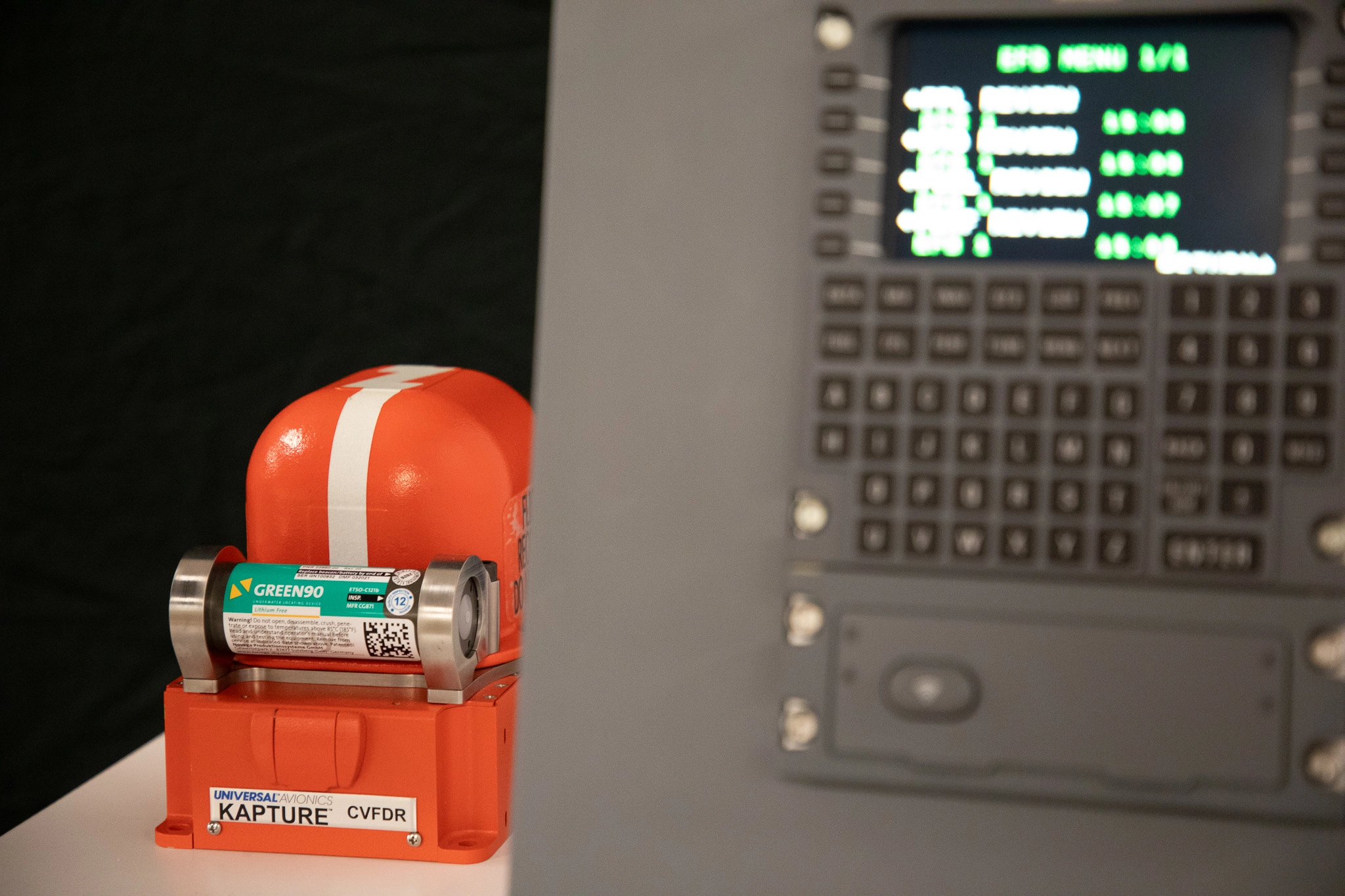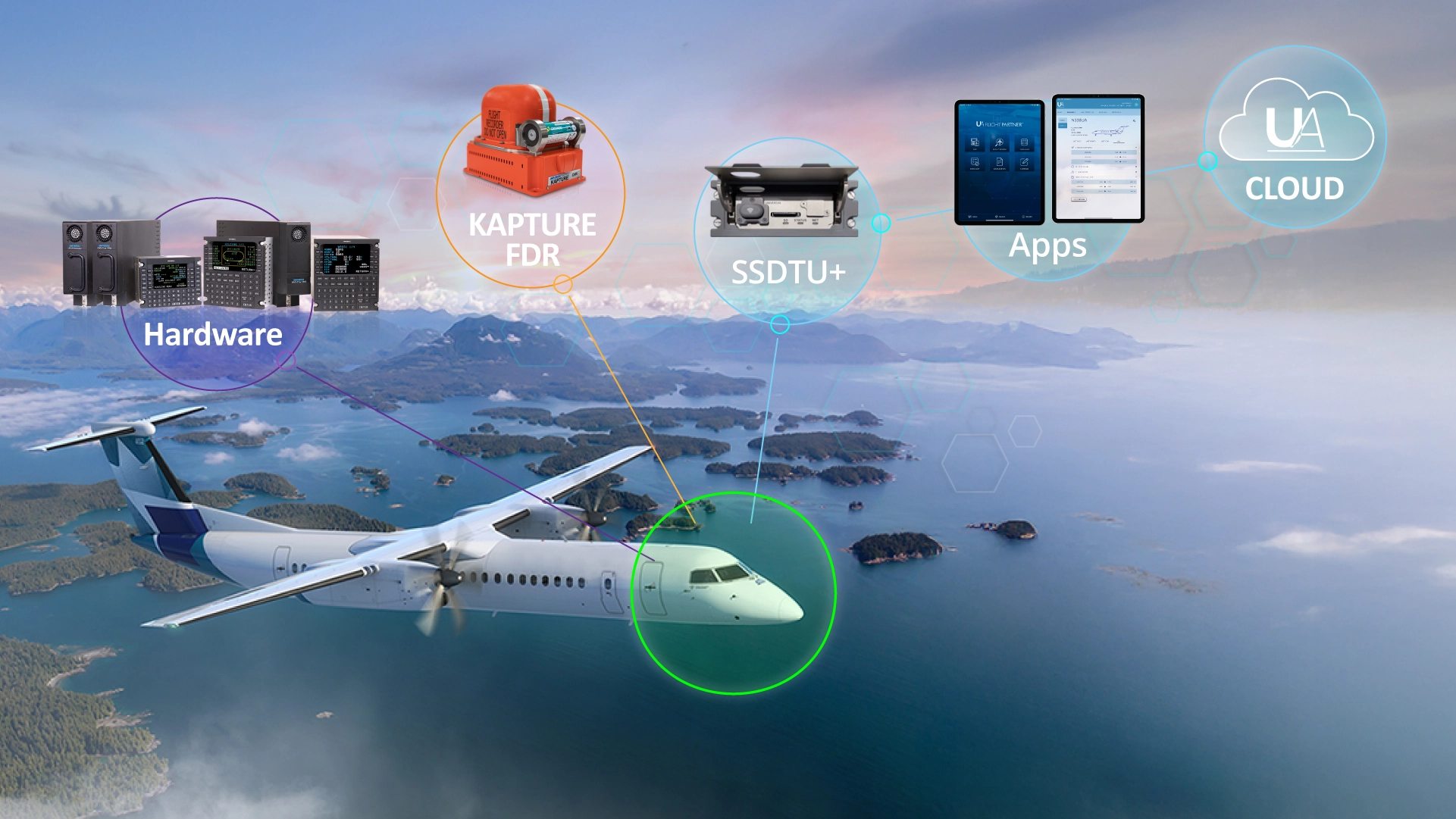The Federal Aviation Administration (FAA) is aligning U.S. regulations with international safety standards through a new 25-hour cockpit voice recorder (CVR) mandate. This long-awaited update responds to decades of recommendations from the National Transportation Safety Board (NTSB) and aims to eliminate critical data loss in modern flight investigations.

New CVR Requirements Under the 2024 FAA Reauthorization Act
By 2030, all in-service aircraft must be retrofitted with compliant systems.
Key Features of the New Mandate:
- Minimum 25-hour audio recording capacity
- 10-minute power backup post main power loss
- Improved underwater locator beacon performance
- Enhanced crash protection against data loss
While the final retrofit regulation is still pending publication, forward-thinking operators are already preparing for this transition.
Why Longer Cockpit Voice Recordings Matter
The January 2024 incident involving Alaska Airlines Flight 1282, where a door plug explosively detached from the aircraft at 16,000 feet, is one of the most compelling recent arguments for longer recording capacity. When NTSB investigators accessed the aircraft's CVR, they discovered that the critical audio had already been overwritten because the aircraft continued operating for several hours after the incident before the recorder was secured.
- Flight crew discussions during the explosive decompression event
- Initial troubleshooting and emergency response procedures
- Critical communications with air traffic control during the emergency
- Cabin crew reports about passenger status and cabin damage
- Decision-making processes regarding the emergency landing
NTSB chair Jennifer Homendy again called for extending CVR recording capacity to 25 hours after this incident. She noted that in the last six years, at least 14 investigations were “hampered” due to overwritten data – including seven serious close-calls and “runway incursions” incidents last year. Other incidents included a hard landing at Hartsfield–Jackson Atlanta International Airport and a “loss of control in flight” near San Francisco in 2022.
Global Momentum for 25-Hour CVRs
- European Union (EASA): 25-hour CVRs already required for many operations
- Canada: Mandates 25-hour capability on new aircraft certifications starting May 2026
Global alignment means 25-hour CVRs are becoming the new safety standard, not just a compliance checkbox.
Why Proactive Operators Benefit Now
Waiting until 2030 risks:
- Installation bottlenecks
- Grounding during last-minute retrofits
- Missed opportunities for operational efficiencies
- Coordinate installation during scheduled maintenance
- Lock in better pricing and availability
- Enhance fleet safety reputation
- Potentially qualify for insurance incentives
Introducing KAPTURE®: A Future-Proof CVR Solution

Universal Avionics' KAPTURE® flight data recorder is purpose-built for 25-hour CVR compliance—delivering a seamless, forward-looking upgrade path.
Why Operators Choose KAPTURE:
- Form-fit-function replacement for 5th-gen Universal Avionics recorders
- Typical 6–8 hour installation, often completed overnight
- Lighter, more compact than legacy equipment
- Advanced connectivity for fleetwide data integration
- Future-ready platform for safety and operational enhancements
Take the Next Step: Prepare for FAA CVR Compliance

